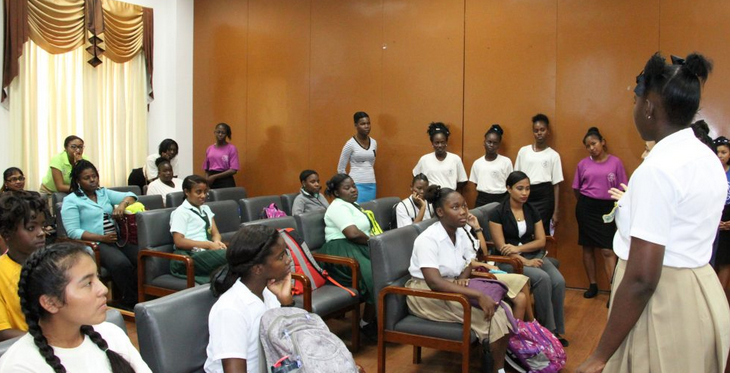Photo: UN Women
New York, NY – Today, The Intercept released its third and final installment in a new video series called “Insecurity.” Created in partnership with the Economic Hardship Reporting Project and hosted by veteran journalist Ray Suarez, “Insecurity” offers an unvarnished look at three women who have fallen through the cracks of America’s social safety net during the pandemic. The series highlights their struggles to gain access to what they need for survival, whether it’s social services, a living wage, or decent mental health care. https://theintercept.com/2022/12/28/pandemic-economy-workers-women/
Series link:
https://theintercept.com/collections/insecurity/
Suarez held long tenures with NPR and PBS NewsHour before anchoring an evening news show on Al Jazeera America. He is the host of the podcast “Going for Broke,” a three-part spinoff of Wisconsin Public Radio’s Peabody award-winning radio show, “To The Best of Our Knowledge.”
In Part I: In the Red Tape, we meet Lisa Ventura, a supportive housing case manager at a social service agency for low income residents of New York City. Americans already spend a collective 11.5 billion hours a year on paperwork for federal agencies, but during the pandemic, the number of people needing Ventura’s help began to grow – and so did the administrative burden. Faced with juggling childcare and an increased workload while working from home, Ventura quit her job, joining the millions of other Americans who have left the workforce since the pandemic began.
https://theintercept.com/2022/12/27/pandemic-benefits-social-services/
Part II : A Fight for More Than 15 profiles Eshawney Gaston, a single mother living paycheck to paycheck as a fast food worker in Durham, North Carolina. In the U.S., 40% of working women make less than $15 an hour, and in Durham, a single parent with one child needs to earn $36.32 an hour to meet basic needs like food, housing, transportation, and childcare. In her limited free time, Gaston joins the wave of labor uprisings sweeping the country as an organizer with the group Rise Up.
Ten Years Into the Fight for $15, Workers Are Still Fighting for a Living Wage
Part III: Mental Health Issues Spiked During the Pandemic. Forgotten by Medicaid takes us to Chicago, where Katie Prout struggles to access mental healthcare under her Medicaid insurance plan. During the first year of the pandemic, depression and anxiety increased 25% globally and an estimated 12.2 million Americans acutely thought about suicide – but despite this increased demand, many mental healthcare practitioners still don’t accept Medicaid.
About The Intercept:
The Intercept is an award-winning nonprofit news organization dedicated to holding the powerful accountable through fearless, adversarial journalism. Its in-depth investigations and unflinching analysis focus on surveillance, war, corruption, the environment, technology, criminal justice, the media and more.












